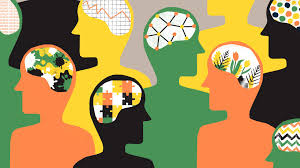
Strengthening Mental Health Services in India: Key Developments
In a recent update provided to the Lok Sabha, Union Minister of State for Health and Family Welfare, Prataprao Jadhav, shared significant advancements in India’s mental health infrastructure. The National Mental Health Survey (NMHS), conducted by the National Institute of Mental Health and Neurosciences (NIMHANS), Bengaluru, in 2016, found that approximately 10.6% of adults over the age of 18 suffer from mental disorders.
In response to these findings, the government has enhanced mental health services through various initiatives. The District Mental Health Programme (DMHP), a crucial component of the National Mental Health Programme (NMHP), has been sanctioned for implementation in 767 districts. This program, supported by the National Health Mission, includes services aimed at suicide prevention, stress management in workplaces, life skills training, and counseling in educational institutions. DMHP facilities at District Hospitals, Community Health Centres (CHCs), and Primary Health Centres (PHCs) offer outpatient services, assessment, counseling, psycho-social interventions, and continuing care for severe mental disorders. Additionally, a 10-bedded inpatient facility is available at the district level.
To further bolster mental health services, the NMHP's tertiary care component has led to the establishment of 25 Centres of Excellence. These centers aim to expand postgraduate training in mental health specialties and provide advanced treatment options. The government has also supported the establishment and strengthening of 47 postgraduate departments in mental health specialties across 19 government medical colleges and institutions. Furthermore, mental health services are being integrated into 22 new AIIMS.
India currently operates 47 government-run mental hospitals, including three central institutions: the National Institute of Mental Health and Neuro Sciences in Bengaluru, the Lokopriya Gopinath Bordoloi Regional Institute of Mental Health in Tezpur, Assam, and the Central Institute of Psychiatry in Ranchi.
At the primary healthcare level, the government has upgraded over 1.73 lakh Sub Health Centres (SHCs) and Primary Health Centres (PHCs) to Ayushman Arogya Mandirs. These centers now include mental health services as part of their comprehensive primary healthcare offerings.
In addition to these initiatives, the government launched the National Tele Mental Health Programme (NTMHP) on October 10, 2022, to improve access to mental health counseling and care. As of July 23, 2024, 36 states and union territories have established 53 Tele MANAS Cells, providing tele mental health services and handling over 11.76 lakh calls on the helpline number.
These measures reflect a robust effort to enhance mental healthcare accessibility and quality across India, addressing the growing needs of the population effectively.